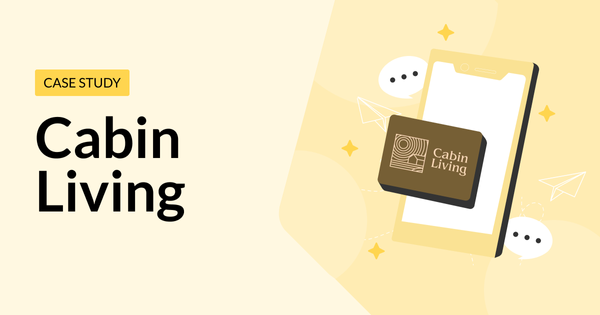The Ultimate Handbook on How to Become a Property Manager

If you would like to be a property manager, it’s good to first get an idea of what the requirements are. The demand for property managers is increasing as the vacation rental industry grows every year.
The property management industry offers numerous opportunities for career advancement, financial growth, and acquiring relevant certifications. Some benefits of being a vacation rental property manager include a potentially higher monthly rate than residential managers and flexible working hours.
Read on to discover more about what property managers do, how much they earn, and how you can get certified to manage vacation rental properties.
- What does a certified property manager do?
- What do property managers make in a year?
- How to Become a Certified Property ManagerPros and Cons of Joining a Property Management Company
- Final Thoughts

What does a certified property manager do?
Before choosing vacation rental management as a career path, it’s important to understand what your role and key responsibilities would be. As a short-term rental manager, you will be responsible for managing your clients’ vacation rentals.
After you have completed the required training for, your day-to-day responsibilities will include:
- Liaising with property owners and managing their needs
- Communicating with guests and confirming bookings
- Overseeing the check-in process and also collecting rent payments
- Marketing the rentals online
- Conducting property inspections
- Organizing maintenance, repairs, and cleaning operations.
Depending on the range of services you decide to offer, you may be expected to do more in addition to the tasks above.
Property management certifications, such as the National Apartment Leasing Professional, Certified Apartment Manager, Certified Property Manager, and Master Property Manager, are crucial for enhancing your skills and opening up career opportunities.
Although it might sound like a busy job with many demands, it’s possible to become a good property manager with the right planning and motivation. Read on to learn the practical steps required for becoming a property manager.
What do property managers make in a year?
The industry average for what property managers make annually depends on the following:
- Level of training: Property managers with only a high school diploma generally earn a lower starting salary than those with a bachelor’s degree or certification.
- State that they operate in: The state-bound regulations on rental properties will affect the salary a property manager earns.
- The competition level of their local rental market: An overcrowded, highly competitive market will impact a property manager’s salary.
- The number of years in the industry: A property manager working for 5+ years in the industry can expect to earn more than an entry-level manager.
An entry-level property manager with less than one year of experience can expect to earn an average base salary of approximately $44,097 per year. Those with a bit more experience in the field, around 1-4 years, typically see their earnings increase to around $49,616 annually
Property managers with 5-9 years of experience can earn an average base salary of $54,332. This salary continues to grow with more experience, reaching about $63,079 for those with 10-19 years of experience, and significantly higher at $83,939 for those in their late career (20+ years of experience)
On average, property managers earn about $55,359 annually. This figure varies based on factors like location, experience, and the type of properties managed
How to Become a Certified Property Manager
This section lays out the steps you’ll need to become a certified property manager. From legalities to certifications, we’ll guide you through the essentials. Whether you’re just starting or aiming to advance your career, here’s your roadmap to success in the property management industry.
Step 1 – Understand the legal side of becoming a property manager
The first step is understanding what your state’s legal requirements are for becoming qualified to manage properties. The legal and licensing requirements you will need to follow will vary depending on which state you live in. Many states require you to first get a real estate broker’s license from the state’s real estate commission, while other states only require a property manager’s license.
There are some states where managers are not required to obtain any qualifications. In these states, it is possible to start working as a property manager without any qualification, but you may have difficulty competing against more qualified managers.
Step 2 – Become a certified property manager
As mentioned above, you will either need a real estate broker’s license or a property manager’s license (some states require both) to be a property manager. Even if your state does not have any specific legal requirements, it’s still a good idea to get continuing education in property management. Getting certified will set you apart from your competitors.
Working under a licensed real estate broker can provide valuable hands-on experience and networking opportunities.
There are two possible options you can look at: formal training for legal licensing and specialized certification.
Double-check what the requirements are at your state’s real estate commission before deciding which option to take. Also make sure you know the requirements of a certification you want, as some certification courses may require you to have a broker’s license to apply.

Formal training for a real estate broker’s license vs. a property management license
Real Estate College Degree
Consider enrolling in a class-based or online college for a bachelor’s or master’s degree in real estate or business administration. Learning how to become a property manager through formal college training will establish you as an expert in the property management field. Your skills will also likely be more sought-after by property management companies and clients. Property management firms often require some undergraduate studies and the steps necessary to engage in property management duties, including licensing courses.
Real Estate License
If going back to college full-time is not an option for you, you still need to obtain a broker’s license in real estate. States typically require 60 – 90 hours of theory on real estate management from a college or from an approved real estate licensing school.
Once you have completed your pre-licensing education, you can apply to take your licensing exam. Ensure you study comprehensively in order to pass the exam. After you pass, you can file a real estate license application to receive your broker’s license. You will then be legally qualified to practice as a real estate agent or property manager.
Property Management License
If you require a property management license, you will still need to enroll in training to obtain it. The process for receiving a PML is similar to the one you follow to get a real estate broker’s license. You will be required to study the necessary pre-licensing coursework. You will then need to take and pass an exam, before applying for a formal property management license.
Specialized Certifications in Real Estate and Property Management
If your state has no legal requirements, then one option is to get a management certification. Property management licenses are issued by the state, while certifications are issued by various real estate property management associations, such as the IREM. Certifications are not legal requirements, but they add value to your resume and give you a competitive edge.
You can even mention them in your resume objective, outlining your career ambitions. Reading resume objective samples is a good way of deciding how to integrate references to professional certifications, whether you already have them or intend to acquire them.
Some well-known certifications include:
Residential Management Professional (RMP) Certification issued by the National Association of Residential Property Managers (NARPM).
Certified Property Manager (CPM) Certification issued by the Institution of Real Estate Management (IREM).
Certified Apartment Manager (CAM) Certification issued by the National Apartment Association (NAA).
These certifications can be instrumental in starting and structuring a successful property management business, helping you build a competent team, create a solid business plan, and provide excellent service to residents.
Step 3 – Define your business goals
After you have received your qualification, you can start mapping out your professional and business goals.
First, you need to decide what you want to achieve in your management career. Are you aiming to join a management firm, or do you want to start your own property management company? If you want to run a management business, will you be working alone or will you hire staff to assist you?
Think about the short and long-term goals you want to achieve. You may only want to manage two or three clients now as you start out, but how many clients would you like to have in five years’ time? Do you want to be working full-time as a property manager or eventually transition to part-time, and have employees run your business for you?
Once you have clear goals set, you can decide what strategies and techniques you should be implementing to turn your business objectives into achievable goals.
Step 4 – Plan your property management strategy
Once you have your goals clearly defined, the next important step is deciding what strategies you will use to ensure your business runs smoothly:
- What tools and software will you use to manage your tasks?
- How will you handle guest communication and complaints?
- How will you find your cleaning and maintenance teams?
- How frequently will you schedule property inspections?
- Will you require assistance if you manage many properties?
It is also crucial to build and maintain relationships with property owners by ensuring clear communication, proactive feedback, and providing the best customer service.
You will also need to determine who your competitors are, and what they charge for their services. How will you determine your monthly rate, and what strategies will you use for pricing the rentals you manage?
Part of becoming a property manager is learning what management systems and procedures to put in place for overseeing operations. To prevent yourself from feeling overwhelmed or working around the clock, consider using vacation rental software, like iGMS to automate tasks.
iGMS helps managers run their businesses on autopilot with features like automated messaging; a unified inbox; channel manager; cleaning and team management, and a lot more. It also offers native integration with Airbnb, platforms from the Vrbo/HomeAway family, and Booking.com (in beta).
By automating these essential tasks, you can rest assured that your business is still running even when you’re offline and focusing on other matters.
Step 5 – Become familiar with online marketing strategies

Becoming savvy in digital marketing is essential. You won’t just be marketing your clients’ properties, you will also need to market your own services online! When it comes to online marketing, your goal is to outperform your competition and attract the right audience. To successfully market online make sure that you:
Establish yourself as a certified business
You should have your own professional website with a purchased domain name, where clients can find you. You should also have a Facebook business page, a professional Instagram account, and a Pinterest account to increase brand visibility. Make sure your social media pages are linked to your business website to drive online traffic.
Create a referral program
A great way to source new clients is by doing affiliate marketing. Offer a discount or money-back rewards program to your clients for every new client that they introduce to you who signs up. This way you can keep growing your business while keeping current clients happy.
Know where and how to market your clients’ properties online
You need to learn how to manage the online marketing of all your properties. All rental descriptions, photographs, host profiles will also have to be kept up to date. You should be utilizing SEO tactics in your listings’ content to boost online visibility. Keep track of booking rates for each property and make adjustments as necessary to the listings, to try and increase bookings.
Stay updated on industry trends
The vacation rental industry is constantly changing and reinventing itself. As a property manager, it’s important for you to stay on top of the latest trends and updates to find new ways to market your listings. If you don’t stay up-to-date, you’re at risk of being outpaced and beaten by your competitors.
If you want to enhance your knowledge of handy marketing tactics, check out our dedicated guide for vacation rental hosts.
Step 6 – Find your first clients and establish your reputation
The final step is learning where to find clients and build a good working reputation. You may feel unsure about how and where to find your first clients when you start out as a manager.
One resource that connects Airbnb hosts with property managers is called the Cohost Market. Managers sign up to register profiles on the site, and from there hosts can seek managers and vice versa. If you are looking to manage Airbnb vacation rentals, this would be a good option.
If you’re looking to manage rentals on other hosting platforms as well, there are social media forums and communities online where you can market your business services. Once you have found your first clients, you can use things like referral programs and positive client reviews to attract more business.
Always remember to keep a professional, but friendly tone in your marketing and communications with clients. They want to know that a real person is managing their properties, not just a brand image.
It’s fine to be honest if you have just learned how to be a property manager and only recently joined the industry. Let hosts know this and, perhaps, offer a lower monthly rate until you gain more experience. As long as you can demonstrate that you’re qualified to do the job, most hosts will not mind and will even appreciate the lower fees.
Although it might seem like a long road ahead when you begin, learning how to become a property manager is well worth the time and effort. With careful research, planning, and perseverance you can become a certified property manager running your own management business.
Pros and Cons of Joining a Property Management Company
Joining an established property management company can be a significant decision for newly certified property managers. Here are some of the advantages and disadvantages to consider:
Pros
- Structured Learning and Support: Most property management companies have structured training programs that help new managers understand the intricacies of the industry. This support can be invaluable in gaining practical experience.
- Steady Income: Working for a company can provide a more predictable income compared to starting your own business, which can have fluctuating earnings, especially in the initial stages.
- Established Reputation: Being part of a reputable company can make it easier to attract and manage high-quality properties because the trust and credibility are already built into the brand.
- Resources and Tools: Established companies typically have access to the best tools, software, and resources, which can make managing properties more efficient and less stressful.
- Networking Opportunities: Working with a company offers numerous opportunities to meet professionals within the industry, which can be great for career advancement.
Cons
- Less Flexibility: Being an employee means you’ll likely have less flexibility in your schedule as compared to managing your own business.
- Limited Earning Potential: While you might have a steady paycheck, your earning potential is often capped at your salary or the bonuses defined by your employer.
- Less Autonomy: Property managers working for a company often have to adhere to the company’s policies and procedures, which can limit their ability to be innovative or tailor their approach to specific properties or clients.
- Potential for Job Insecurity: Depending on the economic health of the company, there could be a higher risk of job insecurity compared to running your own business.
- Dependency: Your professional growth can become tied to the fortunes and the management style of the company, which might not always align with your personal career goals.
Understanding these pros and cons can help you make a more informed decision about whether to join a property management company or to venture out and start your own property management company.

Final Thoughts
Embarking on a career as a property manager can be both challenging and rewarding. With the right training, certifications, and understanding of both legal and practical requirements, you can establish a successful career in this dynamic field.
Whether you choose to join an existing property management company or start your own, the opportunities for growth and success are plentiful. The key is to stay informed, remain adaptable to industry changes, and consistently deliver exceptional service to property owners and tenants alike.
By investing in your skills, understanding your options, and planning your career path carefully, you can achieve professional satisfaction and financial prosperity in the world of property management.
Remember, every step you take towards furthering your education and experience is a step towards becoming a leader in the property management industry. The journey to becoming a certified property manager might seem daunting, but with determination and the right approach, it is definitely within your reach.






